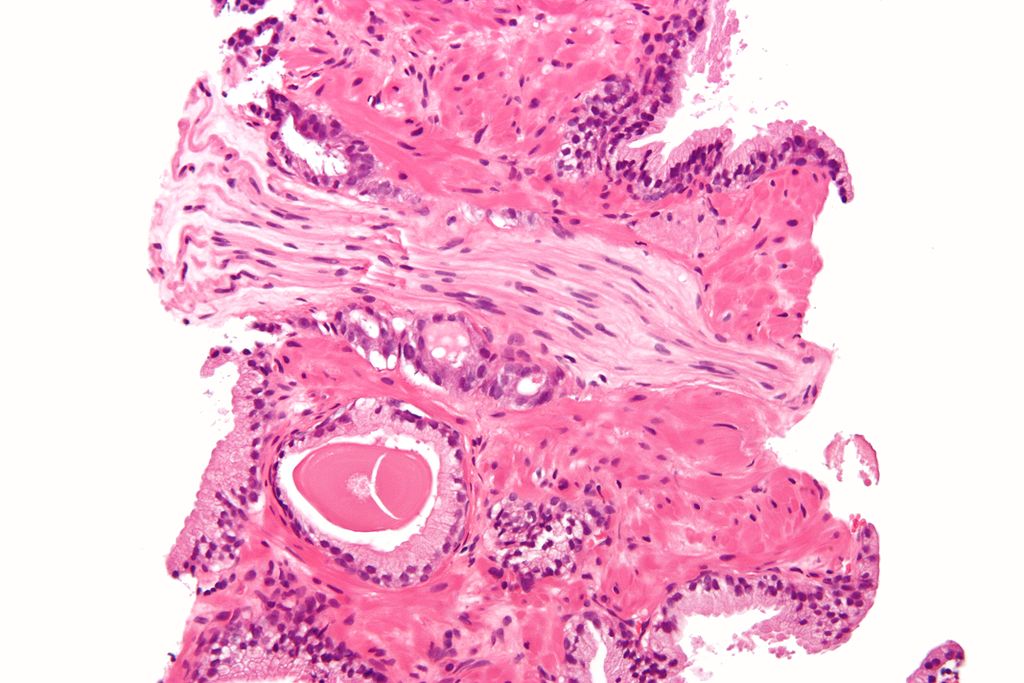Novel Classification System Identifies Prostate Cancer Patients Who May Benefit from Combined Immune and Radiation Therapies
By LabMedica International staff writers
Posted on 22 Dec 2020
A novel classification system is expected to aid in the subtyping of aggressive prostate cancers in patients who may benefit from combined immune and radiation therapies.Posted on 22 Dec 2020
Prostate cancer is graded from 1 to 5 based on how aggressive it is, with 5 being the most aggressive. Patients with 4/5 grade cancers are at the highest risk of poor outcomes or death from the disease. However, currently there are no immunologic or genomic indicators for determination of the best course of treatment for this group of patients.

Image: Micrograph showing a prostate cancer (conventional adenocarcinoma) with perineural invasion (Photo courtesy of Wikimedia Commons)
Investigators at the Moffitt Cancer Center & Research Institute (Tampa, FL, USA) employed two classifiers – the tumor immune content score (ICS) and the Decipher genomic classifier - to assess whether transcriptomic interactions between the two classifiers could identify the most lethal subsets of grade 4/5 prostate cancers. The ICS was derived from the mean expression of 264 immune cell-specific genes, while the Decipher score was based on 22 RNA biomarkers that predicted the probability that a cancer would spread.
For the current study, the investigators analyzed data from 8,071 prostate cancer patient samples of any disease grade (6,071 prostatectomy and 2,000 treatment naïve) in the Decipher Genomics Resource Information Database (GRID) registry. Each patient sample also received an ICS rating.
The samples were separated into four distinct immuno/genomic subsets based on the results: ICS high/Decipher high, ICS low/Decipher high, ICS high/Decipher low, and ICS low/Decipher low.
Results of the analyses revealed that approximately 25% of all grade 4/5 patient samples were in the ICS high/Decipher high subset. The ICS high/Decipher high subtype was associated with increased sensitivity to radiotherapy. Additionally, the ICS high/Decipher high subtype had a significantly higher risk of distant metastasis as compared with the ICS low/Decipher low subtype.
The creation of these novel immuno/genomic subtypes established a very strong synergistic interaction between ICS and Decipher in identifying grade 4/5 prostate cancer patients who are likely to experience the most lethal outcomes.
"Our results will aid in the subtyping of aggressive prostate cancer patients who may benefit from combined immune-radiotherapy modalities," said first author Dr. Kosj Yamoah, director of cancer disparities research at the Moffitt Cancer Center.
The study was published in the December 7, 2020, online edition of the journal European Urology.
Related Links:
Moffitt Cancer Center & Research Institute














